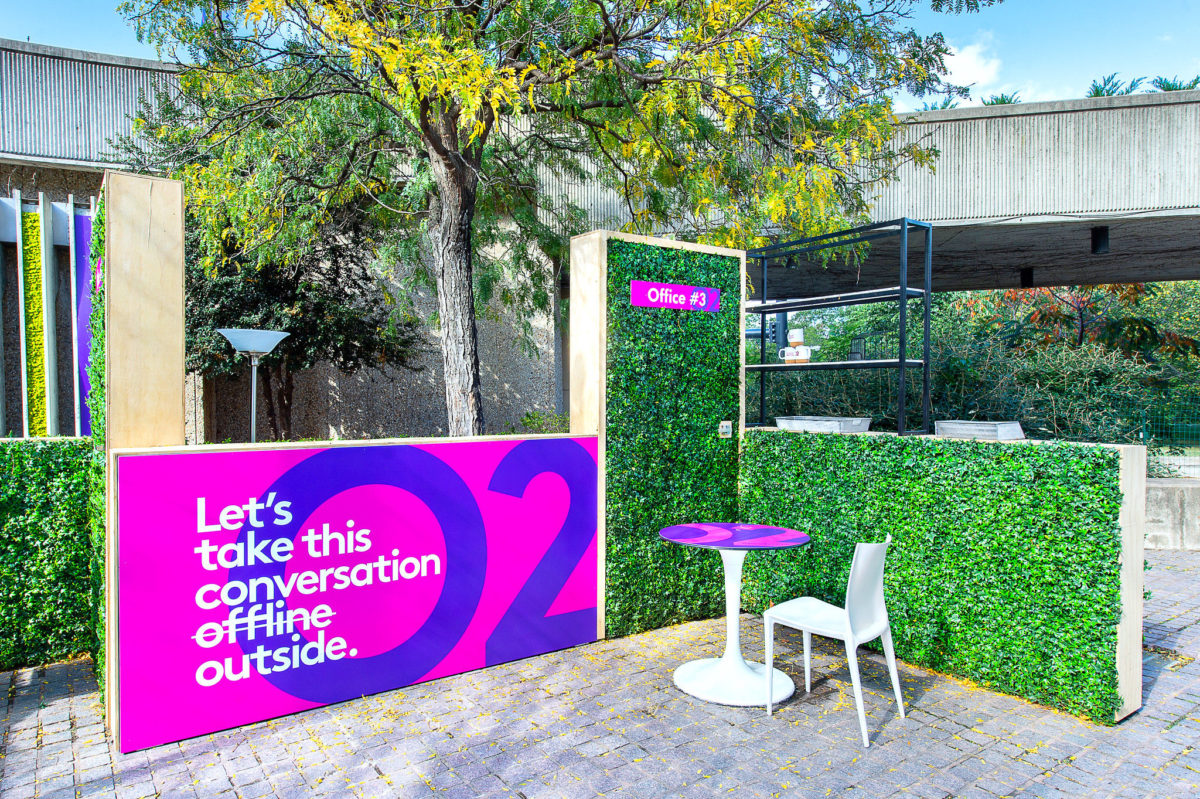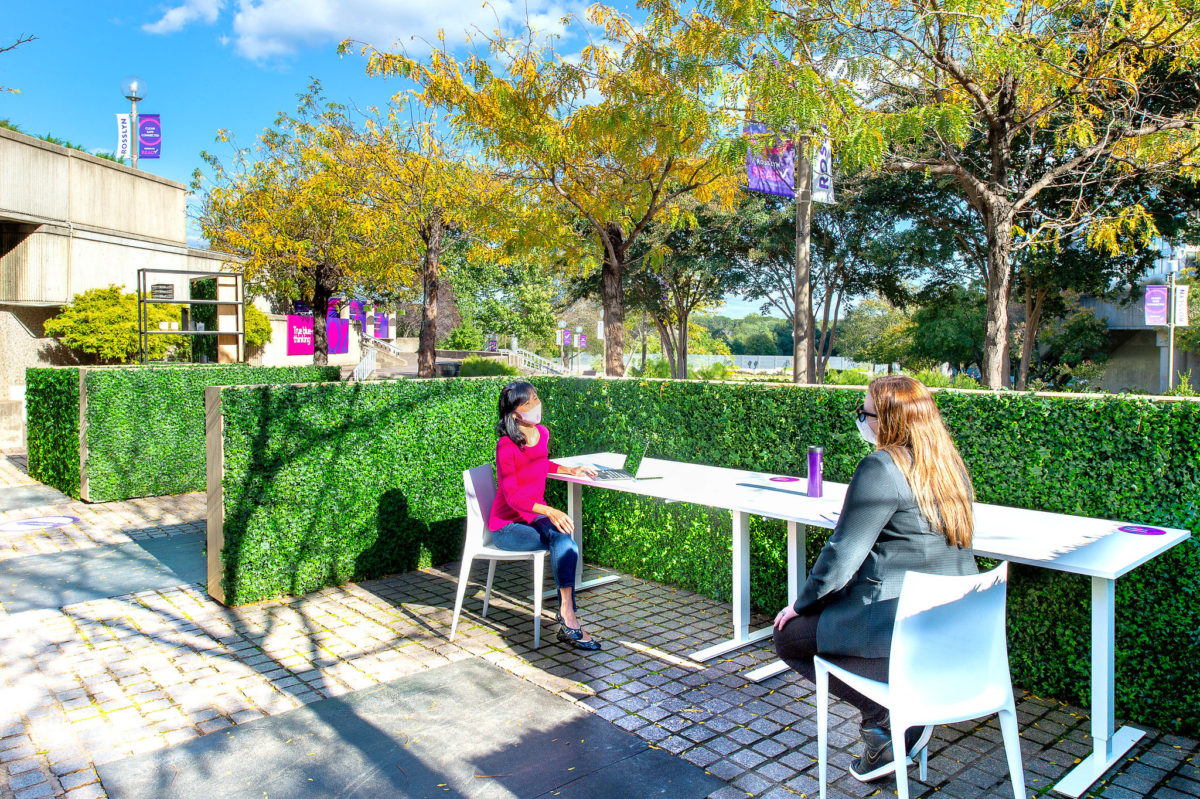As we begin to emerge from the pandemic, there’s lots of talk about things getting back to “normal.” But the truth is, how,and where we work will never be the same.
In many ways, today’s employee faces different challenges from the employee of five years ago. They’ve been forced to work in isolation for the last 18 months, limiting their social interaction and in-person collaboration with colleagues, thus changing the entire notion of what the “office” is. The workplace is evolving into something new, different and, in some ways, revolutionary as employees help drive this change.
As we define what the future of work will look like, there are three realities we’ll all need to address to thrive as a member of the post-pandemic workforce:
Employees want to rebuild community in their professional lives.
For years, the tech industry has been a leader in office innovation, whether through creative perks, generous benefits or flexible hours. It’s an industry that’s always had a reputation for creating an atmosphere that encourages collaboration and community, where people can be their most creative and innovative: think of Google’s often-imitated nap pods, Asana’s allowance for workspace furnishing or Spotify’s lunchtime jam sessions.
As employees begin the process of returning to the office, companies have to figure out what hybrid work means, and how to regain the community that was lost during the pandemic, which is no simple task.
A recent study by McKinsey & Company showed that 39% of employees struggled to maintain a strong connection with colleagues during the COVID-19 pandemic as informal social networks weakened. This is something that employees specifically want to rebuild in the workplace. However, there’s an overwhelming desire for a hybrid workplace, with nearly three-quarters of the 5,000 employees McKinsey surveyed saying they’d like to work from home for two or more days per week, and more than half wanting at least three days of remote work.
After months of remote work, employees are feeling the need to build back their professional communities. It’s time to consider extensions of the traditional office which can foster that same creative and collaborative spirit.
Work-life balance is a major priority.
While work-life balance has been a topic of discussion in tech circles for years, the pandemic shed new light on what exactly this could look like in an evolving workplace. Leaders and their employees are struggling to find balance between holistic wellness and productivity. While working remotely provides some benefits to employees (shorter, or no, commutes and the freedom to tackle personal tasks midday), evidence suggests there are some definitive downsides: work and home life have become boundaryless, and there are negative side effects of a 24/7, always-on mentality.
Many employees found that working from home through the stress of the pandemic has driven up fatigue and made it harder to disconnect from work. A recent article in the Harvard Business Review found that the work-without-boundaries approach may also increase isolation, symptoms of depression, overwork, and job creep into nonwork space and time. Also, because employees are less socially connected to colleagues, there’s a greater risk for layoffs, lower performance ratings and even lower pay.

Rosslyn BID’s O2 coworking space, fall 2020. (Courtesy photo by Dan Swartz)
Business leaders must find ways to make up for the lost sense of community and to recreate these boundaries, even when employees are working from home. To address this, the Rosslyn Business Improvement District (BID) has been exploring an extension of the physical office space to bring employees together again in a more balanced way.
In 2020, we launched O2 outdoor office to help people get out of their homes in the middle of the pandemic. But as restrictions and return to work policies have evolved this year, so have the needs of individuals. That’s why we’re expanding the lens around our outdoor office to also include wellness programming, happy hours and other amenities to provide that critical link between holistic wellness and productivity that employees are craving.
Flexible environments like this will make the transition easier and improve collaboration and community along the way.
Employees are driving the evolution of the workplace.
One big change in this reconfiguration of work is that employers are actively listening to what their employees want when it comes to the workplace environment. Business leaders want their teams back in the office to rebuild company culture and community. But, if they move too quickly, they risk resentment and resistance from their employees.
No matter the industry, this is a tough needle for leaders to thread. In looking for an example of how to proceed, I’d highlight the philosophy that Higher Logic, the industry-leading, human-focused engagement platform, lives by: “person first, employee second.” Guided by Chief People Officer Joanna Luth, the company doubled down this year on what it means to prioritize human connection among their team as a paramount piece of business success.
The people leaders at Higher Logic are providing resources and learning opportunities on how to connect with each employee as a person, learning about them as individuals outside of the work they accomplish as an employee. This has been well-received by Higher Logic employees, and it is an area in which the leadership team encourages feedback and discussion on how to improve.
In today’s climate, employees should speak up about what would encourage them to return to the office regularly while maintaining that critical work-life balance.
“By asking our people how we are doing and what matters most, we gain understanding on how to enable the best employee experience,” says Luth. She believes this is how they’ll adapt and stay relevant to the future of work, no matter what’s driving change.
In today’s climate, employees should speak up about what would encourage them to return to the office regularly while maintaining that critical work-life balance. The future of work is still very much up in the air, and getting it right will depend on strong communication between employee and employer to help reshape the structures that existed before the pandemic.
Since we opened O2 a year ago, many other BIDs, cities, and associations have taken on similar initiatives. As you explore your personal return to work, look for an outdoor office in your community or reach out to local BID leaders and express interest in developing your own as part of a more flexible and balanced return-to-office policy.
While an outdoor workspace can’t replace the culture or collaboration of working in the office with your team, it can provide a beneficial change of scenery for those who have grown weary of their home offices and ease the transition back to becoming an in-person workforce. Business leaders and employees alike are redefining the future of work, so consider how you might be on the forefront of this move toward a better balance of productivity and holistic wellness — a shift which I hope is here to stay.
Join our growing Slack community
Join 5,000 tech professionals and entrepreneurs in our community Slack today!
Donate to the Journalism Fund
Your support powers our independent journalism. Unlike most business-media outlets, we don’t have a paywall. Instead, we count on your personal and organizational contributions.

National AI safety group and CHIPS for America at risk with latest Trump administration firings

How women can succeed in male-dominated trades like robotics, according to one worker who’s done it

Geomapping goes splat: The evolving future of Google Earth


